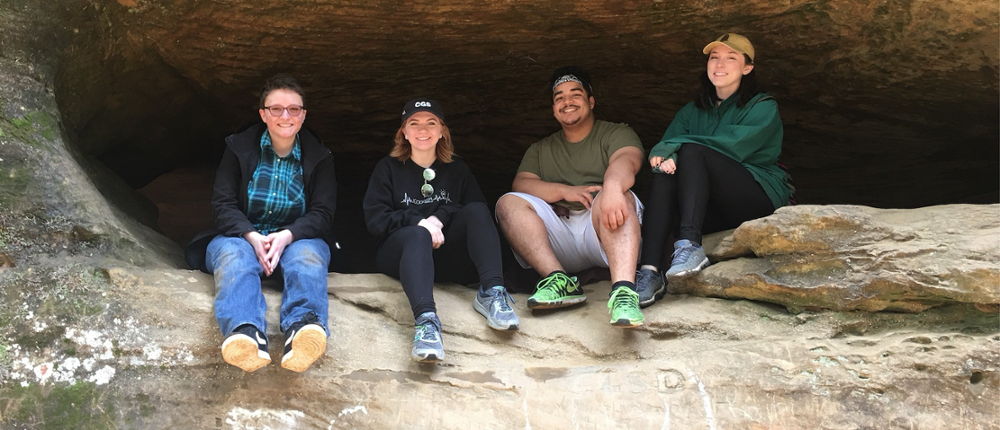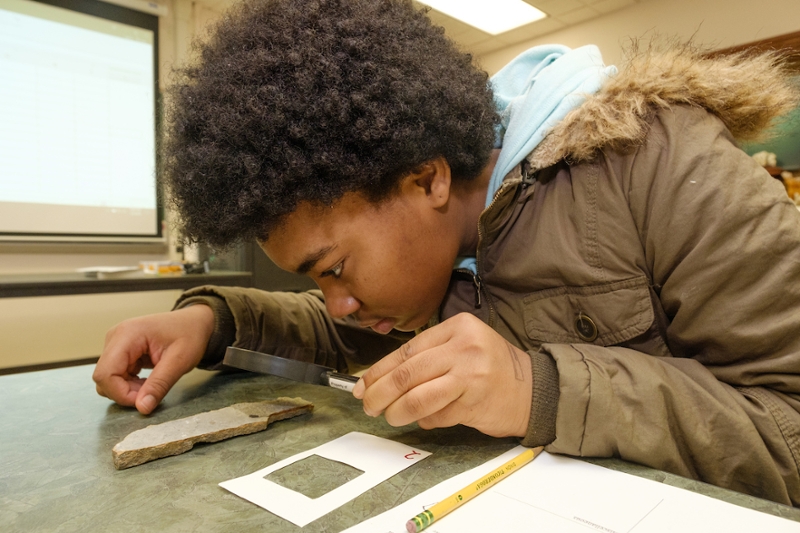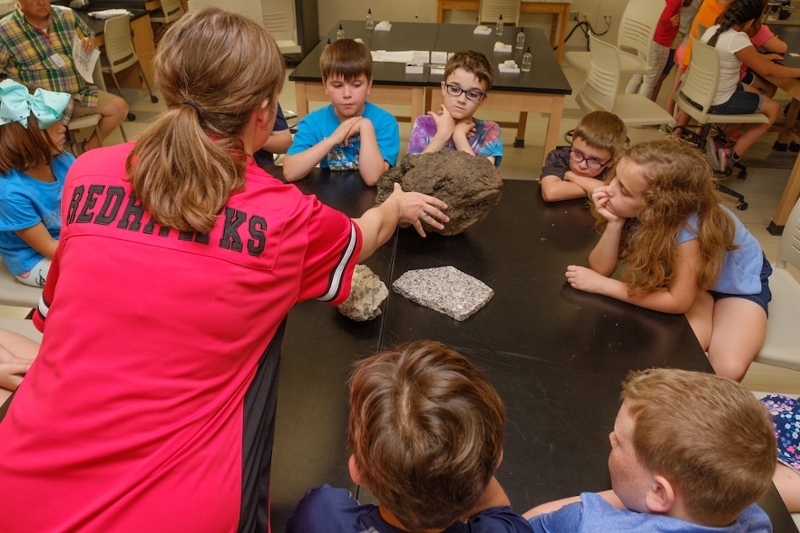

Stargazing leads to a future profession for physics and math major
STEM @ Miami
Upcoming Programs
- Cincinnati TechOlympics 2019: The nation's largest student-run tech conference. Miami will have a booth featuring the College of Engineering and Computing, AIMS and the Farmer School of Business.
- Miami Summer Scholars: The 2019 Summer Scholars application will be available in the spring.
- CIQS Day 2020: Keep an eye out for program updates and registration.
Plan a Visit
Miami sets sights on filling STEM needs as Americans relaunch excitement for space exploration
By Shavon Anderson, university news and communications
On a clear night, the view at Hueston Woods takes your breath away. A long look among the stars reminds Orion Koleva about his place in the universe.
“It can be kind of a wonderful, yet also terrifying, feeling,” he said.
Koleva remembers his first semester stargazing with Miami University’s astronomy club. Now a second-year physics and mathematics double major, he’s club president. He’s also considering a career in his hobby.
At Miami, 70 percent of physics undergraduates engage in research before graduation. Up to 20 percent are co-authors. Koleva is learning alongside professors with shared passions, and through the club, he’s presented on dark matter and modified gravity theories.
In the back of his mind, there’s still concern.
“I do worry that some enthusiasm for studying and going to space is dying down,” he said.

Members of Miami's astronomy club view the sky through a telescope near Western Dining Hall (photo by Scott Kissell).
In a 2018 Pew Research poll, seven in 10 Americans believed it’s essential for the U.S. to be a leader in space exploration. When asked what top priorities should be for the National Aeronautics and Space Administration (NASA), 18 percent supported sending astronauts to Mars. Only 12 percent supported sending them to the moon. Both responses rounded out the bottom of the list.
“People always seem to frown on or dismiss children who say they want to be astronauts, whether it's because they think it's unrealistic, or they just aren't aware of other space-related career options,” Koleva said.
Reports show boys are losing interest in STEM-related fields. Industries are also struggling to garner girls’ interest. Koleva raises a point. You don’t have to be the next John Glenn, but a kid fascinated by space can find fields where they’re needed.
Sparking interest in space and science studies
In 2015, Miami introduced Careers Involving Quantitative Skills Day where young women from regional high schools visit campus, interact with STEM faculty and engage in programs.
Miami’s College of Engineering and Computing was recently ranked by U.S. News & World Report in its “Best Colleges 2019” guidebook. The college provides hands-on learning experiences for prospective students, exposing them to what’s possible. Enrollment is increasing.

A visiting high school student completes an assignment during CIQS Day 2018 (photo by Scott Kissell).
“Engineering is good to get kids involved in from a young age,” Koleva said. He points to operations at major space hubs.
“They design, test and put together the equipment that astronauts depend on,” he added.
There’s versatility in STEM, said Christopher Beer, a senior lecturer of physics and an astronomy club adviser.
“Student with degrees in physics can work in fields as wide ranging as observational astronomy to theoretical cosmology,” Beer said, highlighting the benefits of well-rounded education. “Some of the best members of the astronomy club have been from majors in the humanities or fine arts.”
After space popularity peaked in the 1960s, anticipation turned to apathy. Curiosity about the galaxy is growing thanks to Hollywood and thanks to a familiar name.
“Credit has to be given to SpaceX, and in particular, its founder Elon Musk,” Beer said. “His talk of human colonization of Mars has inspired many people to think about what we could achieve.”
SpaceX is working with NASA on several projects, including sending commercial crew members back to orbit this year. It’s a hopeful reboot of NASA’s Space Shuttle program, which shuttered in 2011.
For years, NASA faced threats of funding cuts. Educators continue eyeing its scholastic sectors, which provide a STEM pipeline. Those resources tie to Miami where students receive annual Astronaut Scholarships. The prize is among the most significant merit-based STEM awards. Winners get access to mentorship and career development.

Miami scientists host Talawanda elementary students on campus during May Science Week 2018 (photo by Scott Kissell).
From kindergarten to career, inspiration starts early
You can find some of the most in-demand STEM workers in their high-tech laboratories or inside international refineries. Koleva wants to see more in the classroom. He worries not enough people want to be educators. To him, it’s a missed opportunity to inspire kids during an important time in their lives.
“The experience I had in physics in both high school and college definitely affected my decision to declare a physics major,” he said.
Right now, Koleva is one of only two physics majors involved in the astronomy club. Other students claim majors across various colleges. The club allows them a space to teach and learn from one another. It also reveals interests they can apply post-graduation.
Taking his own advice, Koleva’s considering a doctorate and becoming a professor. It’s his way of pushing progress in his field.
“I could never see myself not going into STEM,” he said. “I couldn't do anything else.”
Astronomy club meetings are in Kreger Hall during the fall and spring semesters. For more information, visit the Facebook page or email astronomy.mu@gmail.com.
